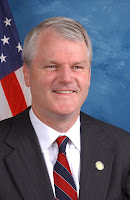So, by now most NASA civil servants have heard the news or at least heard rumors about the news that one of the provisions included in the NASA Authorization Act of 2008 eliminates or severely restricts all conference travel and pretty much any support for conferences from NASA. It's probably not going to end up being quite that bad, but until the lawyers figure out what exactly defines a "conference" NASA has, for now at least, put out a moratorium on using 09 funds for anything that even vaguely resembles a conference (though apparently air shows are perfectly fine).
My initial reaction to this was WTF? Why would Congress want to prevent NASA scientists from doing their job? As scientists, our job is to figure things out and then communicate our results with the rest of the community and the world, that's how science works. Yes, we publish our results in journals, but conferences are a vital part of the process. We get the opportunity for immediate feedback, we get exposed to new ideas, and find people to collaborate with.
I could not figure out what the heck Congress, or specifically, Sen. Tom Coburn who wrote this provision, was thinking until I stumbled upon this article. It talks about "NASA’s long-standing practice of honoring retirees and contractors with lavish award ceremonies costing millions of dollars a year" and it refers to these parties as "conferences". No wonder Congress is upset, I agree that that is wasteful spending, but it's not a conference. A conference is hundreds or thousands of scientists or engineers gathering together to discuss science. We don't get "gourmet food and wine receptions," we are lucky to get a mid-morning coffee break.
(BTW - who are these special retirees? In my office at NASA HQ, when someone retires we take up a collection to buy a card and maybe some cake and chips and salsa and then we gather in the conference room for an hour to wish them well.)
Anyway, I'm wondering who screwed up here, Congress for rushing this bill though and not catching this, or us, the science community for failing to properly explain what we do, how we do it, and why it's important?
Whatever happened, it's going to be a tough year for civil servant scientists, they may have to find some "symposia" or "workshops" to attend this year instead of conferences. It's going to be tough on a lot of other folks too unfortunately, most of the NASA-sponsored funds for conferences, at least in planetary sciences, went towards student travel to those conferences. I hope that denying these opportunities to students was not Senator Coburn's intention.
Showing posts with label Science Policy. Show all posts
Showing posts with label Science Policy. Show all posts
Saturday, October 25, 2008
Friday, May 4, 2007
Defending Peer Review on the Floor of the House

Thank God for the levelheaded members of the House Committee on Science and Technology!
Today's hero is Rep. Baird, who, as the Chair of the Research Subcommittee, successfully defended the peer review process from overzealous republicans yesterday by helping to defeat two ridiculous amendments to the NSF Reauthorization Act that would have cut the funding for several specific studies that were considered "frivolous", such as a study of "accuracy in the cross-cultural understanding of others' emotions". Mr. Baird pointed out that "The scientific merit of a federal research grant often isn't obvious from "a cursory examination of the title or an abstract, that's why we have peer review." The man had clearly done his homework too, he went on to explain that the emotions study, for example, has been endorsed by the U.S. Army Research Institute because its findings could help soldiers correctly read the emotional expressions of people from other cultures and so avoid an accidental firefight that could kill fellow soldiers and innocent civilians.
The amendments were defeated by votes of 195-222 and 126-292, which I find a bit scary.
Way to go Mr. Baird!
The Chronicle of Higher Ed has a good article about it today.
Subscribe to:
Posts (Atom)



